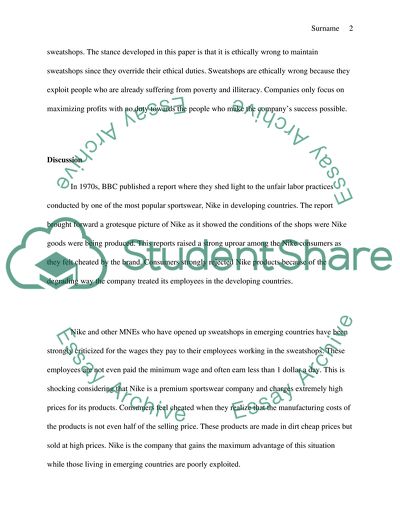Cite this document
(The Ethical Issues with Sweatshops Essay Example | Topics and Well Written Essays - 2000 words, n.d.)
The Ethical Issues with Sweatshops Essay Example | Topics and Well Written Essays - 2000 words. https://studentshare.org/ethics/1826688-the-ethical-issues-with-sweatshops
The Ethical Issues with Sweatshops Essay Example | Topics and Well Written Essays - 2000 words. https://studentshare.org/ethics/1826688-the-ethical-issues-with-sweatshops
(The Ethical Issues With Sweatshops Essay Example | Topics and Well Written Essays - 2000 Words)
The Ethical Issues With Sweatshops Essay Example | Topics and Well Written Essays - 2000 Words. https://studentshare.org/ethics/1826688-the-ethical-issues-with-sweatshops.
The Ethical Issues With Sweatshops Essay Example | Topics and Well Written Essays - 2000 Words. https://studentshare.org/ethics/1826688-the-ethical-issues-with-sweatshops.
“The Ethical Issues With Sweatshops Essay Example | Topics and Well Written Essays - 2000 Words”. https://studentshare.org/ethics/1826688-the-ethical-issues-with-sweatshops.


